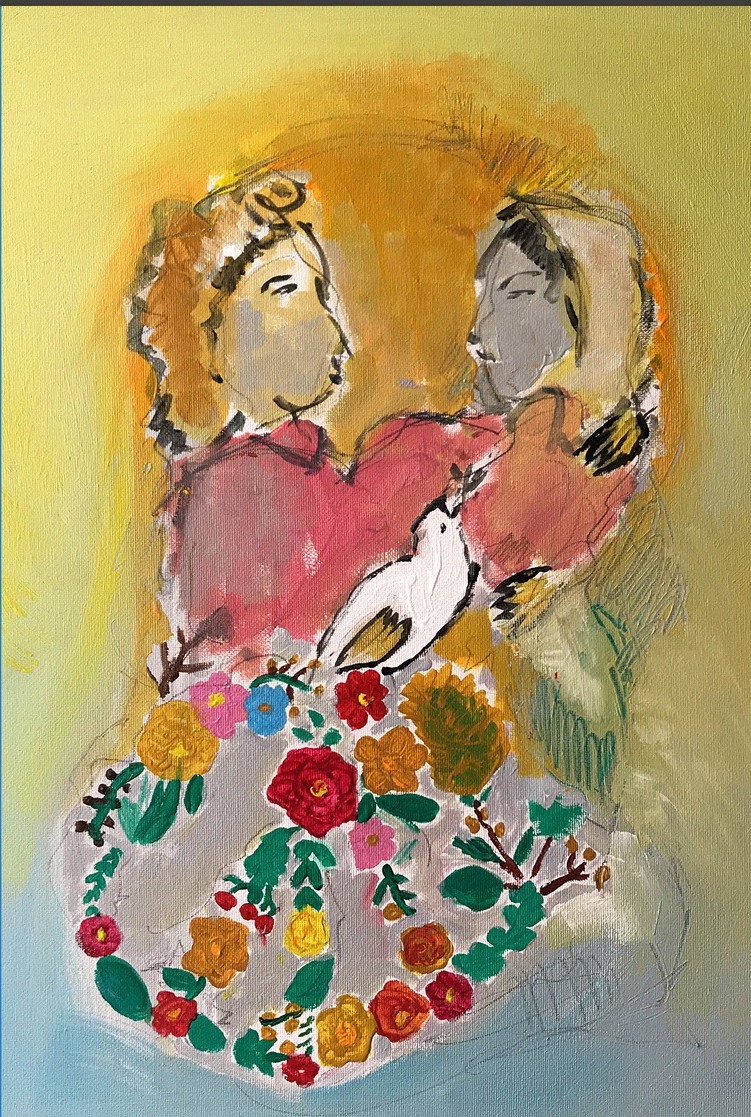This year we are marking the 20th anniversary of United Nations Security Council Resolution 1325 ‘Women, Peace and Security Agenda’ adopted unanimously on 31 October 2000.Described as one of the crowning achievements of the global women’s movement and known since then as the “women, peace and security agenda,” it is a commitment to address the multiple ways in which women and girls are targeted in conflict and to meaningfully include women in peace and security processes – one of the most male-dominated spaces of decision-making.
For the past twenty years, progress has been too slow, although the evidence is clear: when women are at the negotiating table, peace agreements are more likely to last 15 years or longer.
As peace processes continue under the shadow of the current global health emergency, sustained attention must be dedicated to mitigating the high risk that women’s leadership, gender expertise and context-specific gender analysis may be overlooked precisely when needed most. “As the world learns to live with COVID-19 and starts to rebuild and recover, we must seize the opportunity to go beyond fragile, incremental progress, to more transformative change. A COVID-19 response that is gender sensitive represents a transformative opportunity for a more peaceful, sustainable and equitable world” stated Ulrika Richardson, UN Development Coordinator in Kosovo
The implementation of the women, peace and security agenda in Kosovo has been supported by UN Kosovo Team throughout the years, providing capacity building in the field of women’s human rights, transitional justice, peace building and security. UN Women has ensured gender mainstreaming in the security sector, aiming to enhance knowledge and capacity to improve women’s access to justice and security, and compliance with gender policies, ultimately contributing to the safety and security of women of all ages through security services.
Further, in a crucial step forward, in 2014 Kosovo institutions committed to implementing the UNSCR 1325 and strengthened their support for the Women Peace and Security agenda through the creation of the first National Action Plan in the same year. It should be noted that throughout the years, Kosovo has also achieved greater women’s political participation where the 30 per cent quota under the electoral laws were met during the last elections in terms of women’s representation on candidate lists and in parliament.
Kosovo witnessed significant achievements related to the rights of conflict related survivors. One of the major achievements was initiated in March 2014, when the Kosovo
Assembly approved the Law which gave legal recognition to survivors of sexual violence during the conflict, followed by the establishment of The Commission for the Verification and Recognition of status of Sexual Violence survivors, in 2018. These measures, the culmination of years of activism on the part of Kosovar women, reflect the painfully slow path to justice and the growing understanding that sexual violence must specifically be addressed in conflict resolution. Reparations, often the mechanism of justice that women demand the most, have historically been the least received. The establishment of this commission has been recognized as one of the 20 most important moments in the last 20 years[1] in the women, peace and security agenda.
Today, as the world is stricken by the COVID19 pandemic, this resolution matters even more. The pandemic has brought to light the fact how critical the Women, Peace and Security agenda is, as a framework for effectively addressing the immediate impact of COVID-19 as a crisis. On the occasion of the 20th anniversary of UNSCR 1325, Vlora Tuzi Nushi, UN Women Head of Office stated “with women’s participation central to achieving sustainable solutions, the pandemic has brought into sharp relief how critical the WPS agenda is to inclusive and effective decision-making. The promise of the women, peace and security agenda provides a framework for sustainable peace amidst a global crisis.”
The COVID-19 pandemic is exacerbating existing gender inequalities and disrupting coping mechanisms. But the crisis must also be seen as an opportunity to spur the re-negotiation of social contracts and place women’s meaningful participation in public life and peacebuilding at the front and center of collective efforts. Effective recovery processes should be oriented towards ‘building back better’ with more just, equal and inclusive societies.
Kosovo has a rich normative and legislative framework, but going forward, we need to move more to leverage effectively this framework, to improve implementation with a focus to look forward to a decade of action that will be a decade of change that is irreversible and long-lasting.
Photo: Painting by a survivor of conflict related sexual violence in Kosovo. The painting was one of the many exhibited at the “Colours of our Souls” exhibition organized by UN Women in 2018.
The motives chosen by the survivors portray life as they would love it to be and show elements of peace, hope, love and solidarity –that they seek in their lives.








